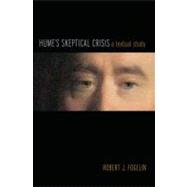
Note: Supplemental materials are not guaranteed with Rental or Used book purchases.
Purchase Benefits
What is included with this book?
| Preface | |
| Texts and Citations | |
| Introduction: The Interpretive Problem | |
| Of Knowledge and Probability: A Quick Tour of Part 3, Book 1 | |
| Of knowledge | |
| Of probability and of the idea of cause and effect | |
| Why a cause is always necessary? | |
| Of the component parts of our reasonings concerning causes and Effects | |
| Of the impressions of the senses and memory | |
| Of the inference from the impression to the idea | |
| Of the nature of the idea, or belief | |
| Of the causes of belief | |
| Of the effects of other relations, and other habits | |
| Of the influence of belief | |
| Of the probability of chances | |
| Of the probability of causes | |
| Of unphilosophical probability | |
| Of the idea of necessary connexion | |
| Rules by which to judge of causes and effects | |
| Of the reason of animals | |
| Hume on Unphilosophical Probabilities | |
| Unphilosophical as opposed to philosophical probabilities | |
| Sources of unphilosophical probabilities | |
| The effect of the remoteness of the event | |
| The effect of the remoteness of the observation | |
| Reiterative diminution | |
| Prejudice based on general rules | |
| Conflicts within the imagination and skepticism | |
| Hume's Skepticism with Regard to Reason | |
| The turn to skepticism | |
| The basic argument | |
| Reducing knowledge to probability | |
| The regression argument | |
| The principle of reiterative diminution | |
| Hume's response to his skepticala argument | |
| Peritrope | |
| Of Skepticism with Regard to the Senses | |
| Hume's turnabout with regard to the senses | |
| The organization of section 2 | |
| The causes of our belief in the existence of bodies | |
| The senses not the source of this belief | |
| Reason not the source of this belief | |
| The operations of the imagination in forming this belief | |
| Hume's informal statement of his position | |
| Hume's systematic statement of his position | |
| The principle of identity | |
| Gap filling | |
| The idea of continued existence | |
| The belief in continued existence | |
| The philosopher's double-existence theory of perception | |
| The Pyrrhonian moment | |
| A concluding note | |
| Of the Ancient and Modern Philosophy | |
| Reasons for examining ancient and modern philosophical systems | |
| Of the ancient philosophy (section 3) | |
| The false belief in the continued identity of changing objects | |
| The fiction of underlying substance, or original first matter | |
| The false belief in the simplicity of objects | |
| The fiction of a unifying substance | |
| The incomprehensibility of the peripatetic system | |
| Skeptical implications | |
| Of the modern philosophy (section 4) | |
| Against the distinction between primary and secondary qualities | |
| Another Pyrrhonian moment | |
| The Soul and the Self | |
| Of the immateriality of the soul (section 5) | |
| Setting the dialectical stage | |
| The soul as substance | |
| The problem of local conjunction | |
| Soul-body interaction | |
| On proofs of immortality | |
| Of personal identity (section 6) | |
| Basic criticisms | |
| Account of the fiction of personal identity | |
| Disputes about identity as merely verbal | |
| The reservations in the appendix | |
| Hume's picture of the mind | |
| Hume's declaration of failure | |
| The Conclusion of Book 1 | |
| A gloomy summation of skeptical results | |
| What is to be done? | |
| Being a philosopher on skeptical principles | |
| Two Openings and Two Closings | |
| The Treatise and the Enquiry on skepticism | |
| The opening of the Treatise | |
| The opening of the Enquiry | |
| The response to skepticism in the Enquiry | |
| The science of human nature in the Enquiry | |
| The role of skeptical arguments in the Enquiry | |
| Skepticism concerning the senses | |
| Skepticism concerning reason | |
| Skepticism concerning moral reasoning | |
| Pyrrhonism and mitigated skepticism | |
| Table of Contents provided by Publisher. All Rights Reserved. |
The New copy of this book will include any supplemental materials advertised. Please check the title of the book to determine if it should include any access cards, study guides, lab manuals, CDs, etc.
The Used, Rental and eBook copies of this book are not guaranteed to include any supplemental materials. Typically, only the book itself is included. This is true even if the title states it includes any access cards, study guides, lab manuals, CDs, etc.